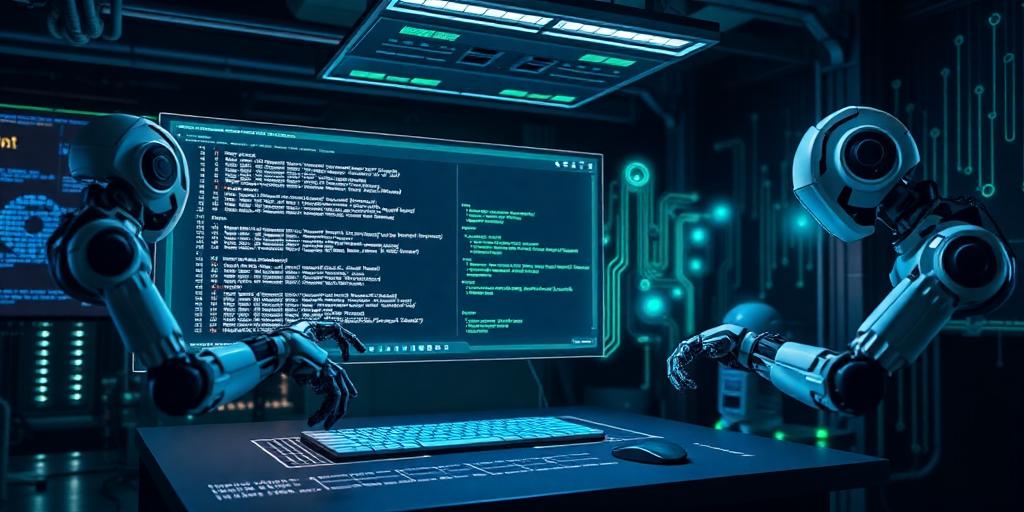The landscape of software development is in constant flux, driven by an insatiable demand for quality, speed, and efficiency. As complexity spirals, traditional testing methodologies often struggle to keep pace. Enter Artificial Intelligence (AI) and advanced automation—not merely tools, but foundational pillars poised to redefine the very essence of software quality assurance. This shift represents a crucial evolution, transforming testing from a reactive bottleneck into a proactive, intelligent, and integral component of the development lifecycle.The Paradigm Shift: AI's Incursion into TestingFor decades, test automation has been a cornerstone of efficient software delivery, primarily focusing on repetitive, rule-based tasks. However, its limitations become apparent when faced with dynamic user interfaces, complex business logic, or the need for intelligent decision-making. AI in software testing bridges these gaps, introducing cognitive capabilities that transcend rote execution. Machine learning algorithms can analyze vast datasets of past defects, code changes, and user behavior to identify potential failure points even before code is written, a concept pivotal for predictive quality assurance.Elevating Automation: Beyond Scripted RepetitionAI's most immediate and profound impact is its ability to elevate existing automation frameworks. Traditional test scripts are rigid; they break with minor UI changes and require constant maintenance. AI-driven testing tools, however, can adapt. Features like self-healing tests automatically adjust scripts to accommodate UI modifications, drastically reducing maintenance overhead. Furthermore, AI can generate more robust and diverse test cases, explore paths human testers might overlook, and even prioritize tests based on risk assessment, optimizing the use of testing resources. This intelligence transforms automation from a simple task executor into a strategic asset for software quality assurance.Key Applications and Transformative BenefitsThe integration of AI offers several transformative benefits across the testing spectrum:Intelligent Test Case Generation: AI can analyze specifications, user stories, and existing codebases to automatically generate comprehensive and optimized test cases, including edge scenarios. This capability significantly enhances test coverage.Predictive Defect Identification: By analyzing historical data and code complexity metrics, AI models can predict areas most prone to defects, allowing developers and QAs to focus their efforts proactively.Self-Healing and Adaptive Tests: As mentioned, AI enables test scripts to dynamically adapt to changes in the application under test, ensuring tests remain relevant and functional without constant manual intervention.Enhanced Exploratory Testing: AI can assist human testers in exploratory sessions by suggesting test paths, identifying anomalies, and intelligently navigating complex applications, augmenting human intuition with data-driven insights.Performance and Security Insights: AI can detect subtle performance bottlenecks or security vulnerabilities that might be missed by traditional methods, by correlating various system metrics and behavioral patterns.Navigating the Challenges of AI Test AutomationWhile the promises are compelling, adopting AI test automation is not without its challenges. Data quality is paramount; AI models are only as good as the data they are trained on. Bias in training data can lead to skewed results. Furthermore, the initial investment in AI tools and the expertise required to implement and manage them can be substantial. The human element remains critical; AI is an augmentation, not a replacement. Testers will need to evolve their skillsets, moving towards roles focused on strategic oversight, model training, and interpreting AI-generated insights. The ethical implications, such as algorithmic bias in critical systems, also warrant careful consideration.The Evolving Role of the Software Quality ProfessionalThe future of software testing does not foresee the obsolescence of the human tester but rather a profound evolution of their role. Testers will transition from manual execution and repetitive script maintenance to becoming orchestrators of intelligent testing systems. Their responsibilities will shift towards designing effective AI models, curating high-quality training data, interpreting complex AI outputs, and focusing on high-level strategic thinking, creativity, and critical assessment of user experience and edge cases that defy algorithmic logic. This heralds a more intellectually stimulating and impactful career path for software quality assurance professionals.ConclusionThe integration of AI and automation is not merely an incremental improvement; it represents a fundamental recalibration of software testing. It promises unprecedented levels of efficiency, accuracy, and depth in quality assurance, ensuring that software meets ever-increasing standards of reliability and performance. Organizations that strategically embrace these technologies will gain a significant competitive advantage, delivering superior products faster and with greater confidence. The future of software testing is intelligent, adaptive, and undeniably driven by the synergistic power of AI and advanced automation.
BREAKING
The Future of Software Testing: AI and Automation
Explore how AI and automation are fundamentally reshaping software testing, delivering enhanced efficiency, predictive capabilities, and a new era of software quality assurance.
26 August 2025

The Future of Software Testing: AI and Automation








